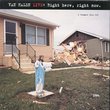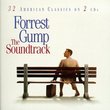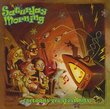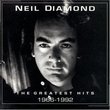| All Artists: Ludwig van Beethoven, Quatuor Mosaiques Title: Beethoven: String Quartets Opus 18 Nos 1 & 4 /Quatuor Mosaiques Members Wishing: 0 Total Copies: 0 Label: Astree Original Release Date: 1/1/2005 Re-Release Date: 6/21/2005 Genre: Classical Styles: Chamber Music, Historical Periods, Classical (c.1770-1830) Number of Discs: 1 SwapaCD Credits: 1 UPC: 822186088999 |
Search - Ludwig van Beethoven, Quatuor Mosaiques :: Beethoven: String Quartets Opus 18 Nos 1 & 4 /Quatuor Mosaiques
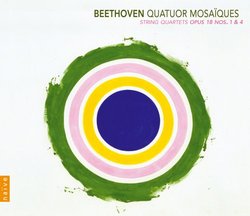 | Ludwig van Beethoven, Quatuor Mosaiques Beethoven: String Quartets Opus 18 Nos 1 & 4 /Quatuor Mosaiques Genre: Classical |
Larger Image |
CD DetailsSimilarly Requested CDs
|
CD ReviewsSuperb Early Beethoven Quartets J Scott Morrison | Middlebury VT, USA | 06/27/2005 (5 out of 5 stars) "'A paradox, a paradox, a most ingenious paradox.' -- W. S. Gilbert, 'Pirates of Penzance' I don't quite understand how this happens, but these performances of two of Beethoven's early quartets done by Quatuor Mosaïques on gut-strung instruments from the 17th and 18th centuries somehow sound more modern, more advanced than when played on modern instruments. One is used to hearing them played by modern-instrument quartets like the Emerson or the Takács Quartets and they sound quaint, Haydnesque, classical. In the present performances they sound dramatic, forward-looking and proto-Romantic. And, might I add, much more interesting. Obviously that is partly because Quatuor Mosaïques is a superb ensemble, but then so are the Emerson and the Takács. So, how to explain it? I think it has something to do with the SOUND of the instruments, softer, more rounded, more subtle, that is inherently more romantic in timbre than the clear-as-a-bell and almost clinical sound of 'modern' instruments. Whatever the explanation, these performances are, for me, revelatory. Added to that is the discovery that pairing Op. 18, No. 1 with Op. 18, No. 4 points out their contrasts neatly. No. 1 is nominally in a major key (F major), No. 4 in minor (C minor). But No. 1 has a minor key movement (the Adagio affettuoso ed appassionato), No. 4 has one in the major (the Andante scherzoso). Beethoven's sketchbooks reveal that he labored long and hard on the No. 1 -- there are a total of fifteen pages devoted to polishing the little one-measure theme of Mvt. I and its working out. But there are no sketches at all for No. 4; it's as if Beethoven had written it out in a flash, like Mozart had done with so many of his works. Yet, No. 1 sounds like a brilliant improvisation and No. 4 has such a complex form and working out that it sounds like the end result of complicated effort on Beethoven's part. A paradox, a paradox. These performances are simply superb. I have not generally been a fan of original instrument string quartet performances, at least in the early days, but the Quatuor Mosaïques seems head and shoulders above other similar groups. The members -- violins Erich Höbarth and Andrea Bischof, viola Anita Mitterer, and cello Christophe Coin -- met when they were all members of Nikolaus Harnoncourt's Concentus Musicus Wien, forming the quartet in 1989. They have risen to the top of their original-instrument category and indeed are among the finest quartets currently before the public. Their tuning is nigh perfect as is their ensemble. They play as one, and their musicianship is impeccable. They have been afforded lifelike sound by recording engineer Philip Nedel and producers Hervé Boissière and Helmut Muhle. Recorded in the Grafenegg Schloss 'Alte Reitschule' in Austria, the surround ambience gives them a natural aura. They have already recorded the other four quartets of Op. 18, and I have Nos. 4 & 6 in my review queue. I have not acquired Nos. 2 and 3, but undoubtedly, because of the quality of this disc, will do so. Urgently recomended, even to those who have multiple recordings of these quartets. TT=55:32 Scott Morrison" 5 stars YES but violins sound on wrong (right side) in Q4 II Charles R. Keller | Hilton NY | 08/13/2007 (5 out of 5 stars) "Listening to quartet recordings and performances for 60 years. The violins in approximately half recordings sound on the right. The reason may be that most quartets place the cello in the center between violin 2 and viola confusing technicians perhaps. The easiest fix, if you have biwired speakers (which have separate inputs for treble and bass), is to connect treble and bass inputs at the speaker then run two inputs to each speaker one with connection reversed and connected to the B output of your receiver. Without such speakers a much less satisfactory fix is to use earphones or dual banana plugs which can be reversed quickly. The fault with this record is even more egregious: the violins sound on the left in movement I and half way through II whereupon about halfway the cello and viola suddenly sound on the far left the violins on the right. This relationship continues in movements III and IV." Good Original Instrument Performances - A Terrific C Minor! Doug - Haydn Fan | California | 05/10/2010 (5 out of 5 stars) "Quatuor Mosaïques has been around since 1988, and during that time they've moved to a postion of prominence among HIP musicians performing quartets from the Classic Era. Their hallmarks are a tight vibrato, very accurate tuning, and highly attentive interchanges between the voices. To this must be added their strong, powerful playing, most notably by their cellist. If not the very finest string players, they certainly must be one of the finest quartets using original strings and bows, sounding far more beautiful than previous similar quartets who stuck it out with early replica bows and used the old fashioned strings and pitches.
Here in Beethoven's first quartets the Quatuor Mosaïque's robust style fits the music like a glove. Beethoven already has advanced into more than just a Classical position, and his quartets, though clearly modeled after the dominating works in the genre of Haydn and Mozart, are filled with his own inner gusto and ebullient, protean swings of temper. If late Beethoven quartets are soul-searching, these early ones are life-affirming, filled with pananche and the growing confidence of a musical genius quite unafraid to match his skills against such towering talents as his two great Viennese predecessors. Beethoven by 1800 is a composer whose full creative range has not emerged, yet he's already accelerating down the hill, beginning to expand his musical horizons in the exponential way we know he will from our contemporary vantage point in history. These two quartets from the set of six are one of three Cds, each available separately, but not, as yet, in a single offering, as are the Quatuor Mosaïque's various Haydn recordings, which sometimes can be purchased as one unit. Of these two performances I most enjoyed the C minor, it's a stunning traversal, and makes a great case for playing this music with the original instruments - anyway, when such instruments are handled with the aplomb and style of the Quatuor Mosaïque. Cellist Christopher Coin goes all out in the finale, the Allegretto - Prestissimo - I've rarely heard original instrument strings playing with such extra fire and passion avoid rough edges - a remarkable group! An excellent choice - a certainly a must have for anyone who already has modern string quartets and wants to hear the best possible version in the original sound garb!" |


